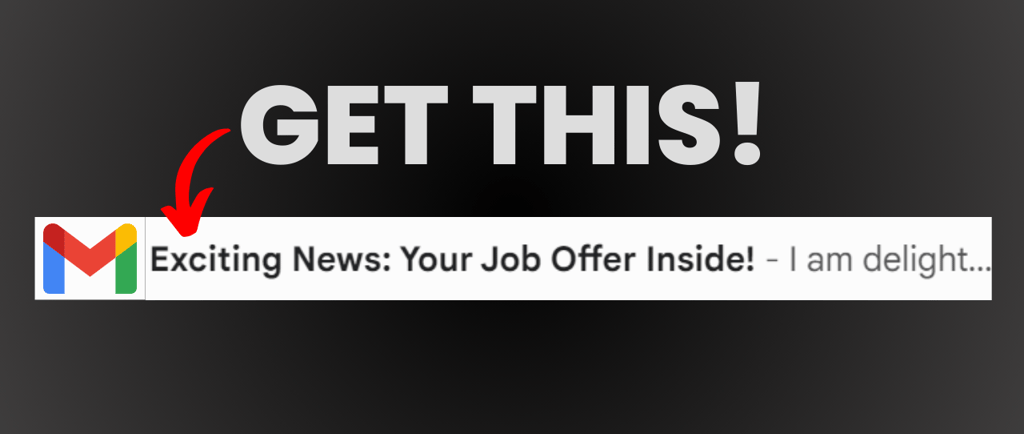Job Interview Prep that Gets You the Job in 2024
INTERVIEW PREP
Neeraj Mathrani
6/14/20244 min read


In today's competitive job market, standing out from the crowd is crucial. In this blog post, I am going to use my decade of hiring experience to help you prepare for your interviews. Let's dive into five essential preparation steps that will help set you apart. These steps have helped me and my clients land dream jobs, and I hope they will help you too!
Step 1: Research, Research, Research
A few years ago, I was interviewing a candidate for my team. A controversial news story had just come out about our company. I asked the candidate what his thoughts were on the story. He was unaware that a major news story had come out. Don't be that person! Thorough research is your foundation, and it spans four key areas:
Company Overview: Dig into the company's mission, products, and services. Find something that genuinely excites you—it'll shine through in your answers to questions like "Why do you want to work here?" And don't forget to check the latest news about the company.
Company Culture: Every organization has its own set of values that guide employee behavior. Familiarize yourself with their company values and prepare examples of how you've embodied similar values in your past roles.
Job Requirements: For each requirement listed, have a relevant example ready of where you have met or exceeded the requirement. And here's a pro tip: if there's a skill gap, start a course or certification to show initiative. It's a great way to handle the "but I don't have experience in X" dilemma.
Your Interviewers: The recruiter has hopefully given you a list of your interviewers. If not, you can ask for it. For each of these interviewers, check out their LinkedIn profile. Understanding your interviewers' professional backgrounds can help you anticipate their questions and prepare thoughtful queries of your own. Remember, you are interviewing them, too!
Step 2: Know Thyself (and Thy Resume)
Your resume is more than a document—it's a conversation starter. Be ready to expand on every bullet point with compelling stories that showcase your unique value. When I was hiring, I always probed deeper to understand the person behind the paper.
This is where the STAR method comes in handy for behavioral questions. Behavioral questions start with "tell me about a time when.." The STAR answer consists of:
Situation: What was the situation? If you were telling a story, this is where you would set up the scene and the main characters.
Task: What was the task at hand? What was required of you?
Action: What actions did you take? What did you do?
Result: What were the results that you achieved?
Bonus points for including any learnings that you may have had. Hiring managers and recruiters appreciate seeing how you have grown.
Remember, real examples trump hypotheticals. Research has shown that the past doesn't dictate the future, but it does give a good indication of how you would act if a similar situation were to happen in the future. But if you lack experience in a specific area, it's okay to frame a response as "If I were to encounter this, here's how I would handle it."
Step 3: Practice Makes Perfect
Find someone with hiring experience—a mentor, former colleague, or a career coach like myself—to conduct mock interviews. Seek specific feedback and be open to it: Did you come across as confident? Were your examples relevant?
In this age of AI, tools like ChatGPT can also be valuable practice partners. (Stay tuned for a future post on leveraging AI in interview prep!)
Step 4: Dress the Part
First impressions matter. While I never held a candidate's attire against them, I did notice some candidates wearing a suit to a video game company; that felt out of place. Here's a hack: check the company's website for employee photos, then aim for one notch more formal just in case. And for virtual interviews? Pants are optional, but you may want to wear them just in case you need to get up.
Step 5: Bring the Essentials
On interview day, come equipped with:
Multiple copies of your resume (some interviewers may not have it on hand)
A notepad and pen for jotting down key points
A list of insightful questions for when they inevitably ask, "Do you have any questions for us?" Your research from Step 1 should help here.
Bonus Tips:
Be Natural: All this prep work is to help you speak confidently, not recite robotically. Authenticity always wins.
Take Your Time: If you need time to think of an answer, ask! It's perfectly okay to say, "Can I have 30 seconds to think about this?"
Avoid Clichés: Generic answers are the fast track to being forgettable. We'll explore crafting standout responses in upcoming posts.
Be Authentic: While landing the job is the goal, pretending to be someone you are not leads to future complications. If you don't know an answer, just say that and share how you will close that knowledge or experience gap. Honesty about your strengths and areas for growth is not only critical, but also refreshing.
If you are a visual learner, you can check out the video version of this article.
This preparation has helped me and my clients land our dream jobs. The journey to your dream job starts with believing in yourself and showcasing the unique value you bring.
I wish you the very best. You got this.